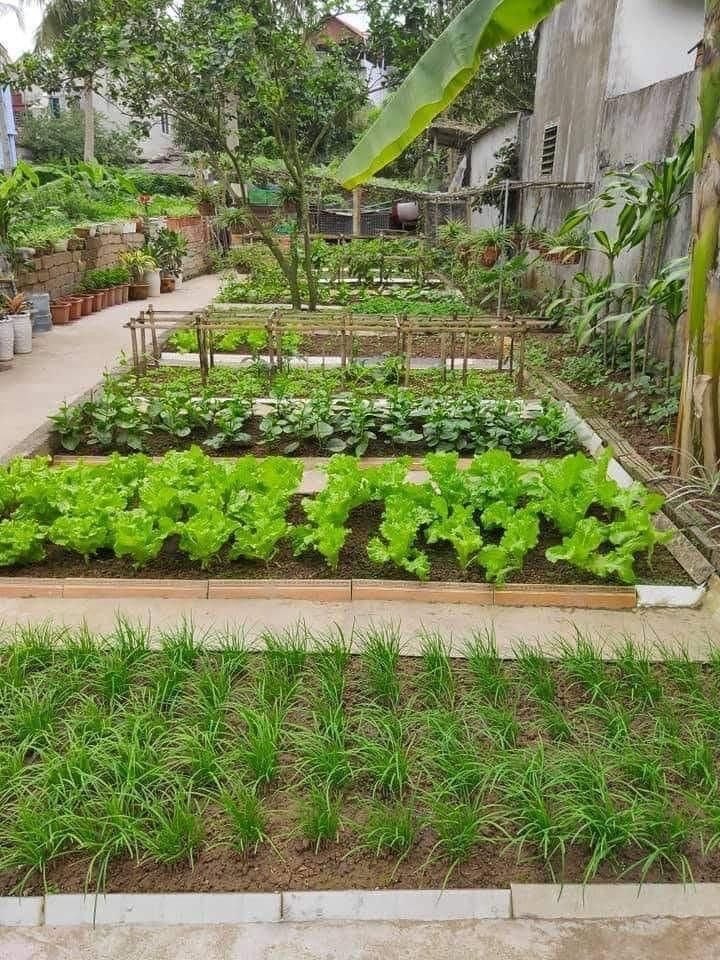Organic Vegetable Gardening is a rewarding and sustainable way to enjoy fresh and healthy produce right from your backyard. Whether you’re a seasoned gardener or a novice, these 10 essential tips will help you achieve a bountiful harvest and a thriving garden ecosystem. From soil preparation to pest management, let’s delve into the world of organic vegetable gardening and unlock the secrets to successful cultivation.
Introduction
Embarking on a journey to grow your own organic vegetables is an exciting endeavor that not only benefits your health but also contributes positively to the environment. By adhering to organic practices, you’re not only ensuring the quality of the produce but also promoting the well-being of the soil, water, and surrounding ecosystem. In this comprehensive guide, we’ll provide you with expert insights and practical tips to make your organic vegetable garden flourish.
Organic Vegetable Gardening: 10 Tips for a Bountiful Harvest
Soil Preparation: Lay the Foundation for Success
Healthy soil is the cornerstone of a thriving organic garden. Begin by testing your soil’s pH and composition to determine its fertility. Amend the soil with compost, well-rotted manure, and organic matter to improve its structure, drainage, and nutrient content. This sets the stage for strong plant growth and nutrient-rich produce.
Companion Planting: Nature’s Harmony
Utilize the power of companion planting to create a natural ecosystem that deters pests, improves pollination, and enhances soil fertility. Plant compatible crops together, such as marigolds to repel pests or beans to enrich the soil with nitrogen. This synergistic approach promotes a balanced and vibrant garden.
Crop Rotation: Prevent Pests and Diseases
Rotate your crops annually to prevent the buildup of pests and diseases. Different plant families have distinct nutrient needs and susceptibility to specific issues. By rotating crops, you disrupt the life cycle of pests and maintain soil health, reducing the need for chemical interventions.
Proper Watering: Nourish for Optimal Growth
Watering is crucial for plant development. Provide consistent moisture to the root zone, preferably in the morning, to prevent fungal growth and water stress. Use mulch to retain soil moisture, suppress weeds, and regulate soil temperature.
Organic Fertilization: Feed the Soil, Not Just the Plants
Opt for slow-release, organic fertilizers to nourish plants and enhance soil fertility. Avoid synthetic chemicals that can harm beneficial soil microorganisms. Compost, worm castings, and seaweed-based fertilizers are excellent choices to provide essential nutrients over time.
Natural Pest Control: Balance the Ecosystem
Embrace natural pest control methods to manage garden pests without resorting to harmful chemicals. Introduce beneficial insects like ladybugs and lacewings to prey on pests. Neem oil, garlic spray, and diatomaceous earth are also effective remedies to keep unwanted visitors at bay.
Raised Beds and Containers: Optimize Space and Drainage
If space is limited, consider raised beds or containers for your organic garden. These options offer better control over soil quality, drainage, and pest management. They also make gardening more accessible, especially for those with physical limitations.
Sunlight and Temperature: Provide Ideal Growing Conditions
Most vegetables thrive in full sun, receiving at least 6-8 hours of direct sunlight per day. Adequate sunlight promotes photosynthesis and robust growth. Be mindful of your plant’s temperature requirements, protecting them from frost or extreme heat as needed.
Pruning and Training: Shape for Success
Proper pruning and training enhance plant structure, air circulation, and fruit production. Remove diseased or overcrowded foliage to prevent the spread of pathogens. Additionally, train vining plants like tomatoes or cucumbers to grow vertically for better space utilization.
Harvesting: Timing is Everything
Harvest your organic produce at the peak of ripeness for maximum flavor and nutritional content. Regularly pick fruits and vegetables to encourage continuous production. Use clean, sharp tools to minimize damage to plants and extend their productivity.
FAQs
Q: How do I control weeds in my organic garden?
A: Mulching with organic materials like straw or wood chips suppresses weed growth and conserves soil moisture.
Q: Can I use eggshells as a natural pest deterrent?
A: Yes, crushed eggshells act as a barrier against slugs and snails. Sprinkle them around vulnerable plants.
Q: What’s the best way to compost kitchen waste?
A: Create a compost pile or bin with a mix of kitchen scraps, yard waste, and leaves. Turn the pile occasionally to speed up decomposition.
Q: Are there organic solutions to common plant diseases?
A: Yes, solutions like copper fungicides, baking soda sprays, and neem oil can help control fungal diseases while adhering to organic practices.
Q: How can I attract pollinators to my garden?
A: Plant native flowers, herbs, and shrubs that attract bees, butterflies, and other pollinators. Providing water sources also encourages their presence.
Q: What can I do to improve soil fertility naturally?
A: Utilize cover crops like clover or buckwheat to add nutrients and organic matter to the soil. Crop rotation and composting also enhance fertility.
Conclusion
Embarking on the journey of organic vegetable gardening offers not only the satisfaction of nurturing plants but also the joy of harvesting healthy and delicious produce. By following these 10 tips, you’ll create a thriving garden ecosystem that supports your plants, deters pests, and contributes positively to the environment. Remember, organic gardening is a continuous learning process, so observe, adapt, and enjoy the journey toward a bountiful harvest.
